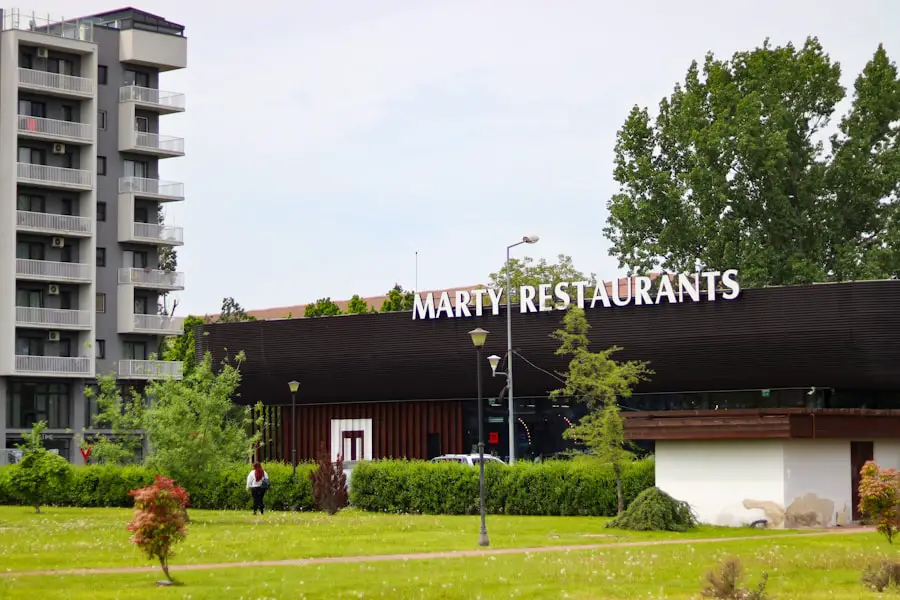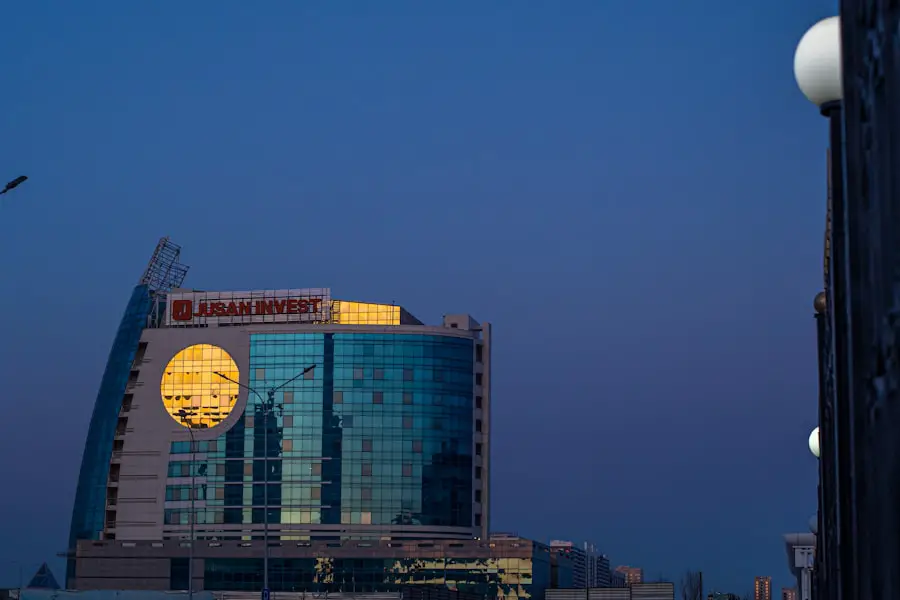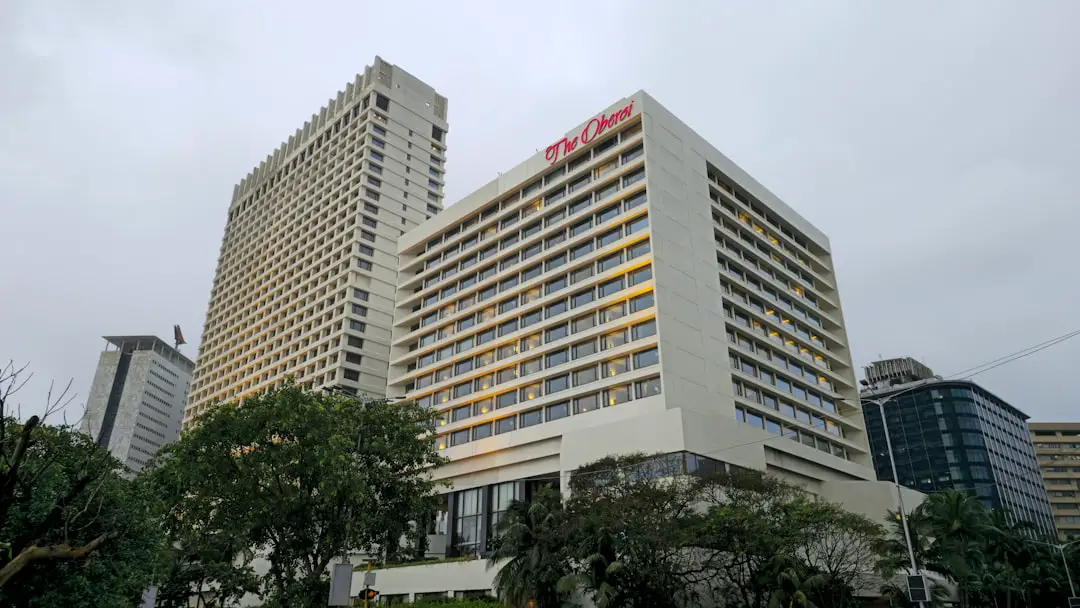Marriott International’s origins can be traced back to 1927 when J. Willard Marriott and his wife, Alice, opened a root beer stand in Washington, D.This modest venture quickly evolved into a successful restaurant business, which laid the groundwork for what would become one of the largest hospitality companies in the world. By 1957, the Marriotts had expanded their operations to include their first hotel, the Twin Bridges Motor Hotel in Arlington, Virginia.
This marked a significant turning point for the company, as it transitioned from a restaurant chain to a full-fledged hotelier. The success of this initial hotel spurred further expansion, and by the 1960s, Marriott had established itself as a prominent player in the burgeoning hotel industry. Throughout the decades, Marriott continued to grow and diversify its offerings.
The company went public in 1953, which provided the capital necessary for further expansion. In 1983, Marriott International was officially formed as a separate entity from its restaurant operations, allowing it to focus exclusively on hospitality. The acquisition of several hotel chains throughout the 1990s and early 2000s, including Renaissance Hotels and the Ritz-Carlton, significantly broadened Marriott’s portfolio.
By the time it acquired Starwood Hotels & Resorts in 2016, Marriott had solidified its position as the largest hotel chain in the world, boasting over 7,000 properties across more than 130 countries.
Key Takeaways
- Marriott International was founded in 1927 as a root beer stand and has since grown into a global hospitality company with over 7,600 properties in 133 countries and territories.
- Marriott Hotel Brands include luxury brands like The Ritz-Carlton and St. Regis, premium brands like Marriott Hotels and Sheraton, and select-service brands like Courtyard and Residence Inn.
- Marriott International is committed to sustainability, with goals to reduce water and waste by 15% and carbon emissions by 30% by 2025, and to responsibly source its seafood and palm oil.
- The Marriott Bonvoy Loyalty Program offers members exclusive benefits, including free Wi-Fi, mobile check-in, and the ability to earn and redeem points at over 7,000 hotels worldwide.
- Marriott International has a positive impact on local communities through initiatives like workforce development, disaster relief, and supporting local businesses and entrepreneurs.
Marriott Hotel Brands
Marriott International operates an extensive array of hotel brands that cater to various market segments and traveler preferences. The company’s portfolio is divided into several categories, including luxury, premium, and select service brands. At the luxury end of the spectrum, The Ritz-Carlton and St.
Regis brands exemplify opulence and personalized service. These hotels are often located in prime destinations and offer high-end amenities such as fine dining, spa services, and bespoke experiences tailored to individual guests. In the premium category, brands like Marriott Hotels, Sheraton, and Westin provide comfortable accommodations with a focus on quality service and amenities.
These hotels are designed to appeal to both business and leisure travelers, offering features such as meeting spaces, fitness centers, and on-site dining options. The select service segment includes brands like Courtyard by Marriott and Fairfield Inn & Suites, which prioritize affordability and convenience without sacrificing quality. These hotels are often strategically located near airports or business districts, making them ideal for travelers seeking practicality during their stay.
Marriott International’s Sustainability Efforts

Marriott International has made significant strides in sustainability over the years, recognizing the importance of environmental stewardship in the hospitality industry. The company launched its “Serve 360” initiative in 2017, which outlines its commitment to sustainable practices across various dimensions of its operations. This initiative focuses on four key areas: nurturing environments, empowering communities, supporting responsible sourcing, and promoting global diversity and inclusion.
One notable aspect of Marriott’s sustainability efforts is its commitment to reducing carbon emissions. The company has set ambitious goals to reduce its greenhouse gas emissions by 30% by 2025 compared to 2016 levels. To achieve this target, Marriott has implemented energy-efficient technologies in its properties, such as LED lighting and smart thermostats.
Additionally, the company has invested in renewable energy sources like solar and wind power to further decrease its carbon footprint.
The Marriott Bonvoy Loyalty Program
| Category | Details |
|---|---|
| Membership Tiers | Member, Silver Elite, Gold Elite, Platinum Elite, Titanium Elite, Ambassador Elite |
| Points Redemption | Free nights, Room upgrades, Dining and spa credits, Airline miles conversion |
| Participating Brands | Marriott, Ritz-Carlton, St. Regis, Sheraton, Westin, W Hotels, and more |
| Benefits | Priority late check-out, Exclusive member rates, Mobile check-in and check-out, Free Wi-Fi |
The Marriott Bonvoy loyalty program is a cornerstone of Marriott International’s customer engagement strategy. Launched in 2019 as a rebranding of the previous loyalty programs—Marriott Rewards, The Ritz-Carlton Rewards, and Starwood Preferred Guest—Bonvoy offers members a range of benefits designed to enhance their travel experiences. With over 150 million members worldwide, the program provides opportunities for earning points through hotel stays, dining experiences, and even car rentals.
Members can redeem their points for free nights at any of Marriott’s properties or use them for exclusive experiences such as concerts or culinary events. The program also features tiered membership levels—Silver Elite, Gold Elite, Platinum Elite, Titanium Elite, and Ambassador Elite—each offering increasing benefits such as room upgrades, late check-out privileges, and access to exclusive lounges. This tiered structure incentivizes frequent travelers to remain loyal to Marriott brands while enjoying personalized perks that enhance their overall experience.
Marriott International’s Impact on Local Communities
Marriott International recognizes that its operations have a profound impact on local communities where its hotels are situated. The company actively engages in community development initiatives aimed at fostering economic growth and social well-being. Through partnerships with local organizations and non-profits, Marriott supports various programs that address issues such as education, workforce development, and disaster relief.
One example of Marriott’s community engagement is its “Spirit to Serve” program, which encourages employees to volunteer their time and resources to support local causes. This initiative not only strengthens community ties but also fosters a sense of purpose among employees who take pride in contributing to meaningful projects. Additionally, Marriott has committed to hiring individuals from underserved communities as part of its broader diversity and inclusion strategy, thereby creating job opportunities that can uplift entire neighborhoods.
The Future of Marriott International

As the hospitality industry continues to evolve in response to changing consumer preferences and technological advancements, Marriott International is poised to adapt and thrive in this dynamic landscape. The company is focusing on enhancing its digital capabilities to improve guest experiences through mobile technology and personalized services. For instance, Marriott has invested in mobile apps that allow guests to check-in remotely, access their rooms via mobile keys, and customize their stay preferences before arrival.
Moreover, sustainability will remain a central theme in Marriott’s future strategy. As travelers increasingly prioritize eco-friendly practices when choosing accommodations, Marriott is committed to leading the charge in sustainable hospitality. This includes expanding its portfolio of eco-conscious hotels that incorporate green building standards and sustainable practices into their operations.
By aligning its business model with evolving consumer values around sustainability and technology, Marriott aims to maintain its competitive edge in an ever-changing market.
Marriott International’s Commitment to Diversity and Inclusion
Marriott International has long been an advocate for diversity and inclusion within its workforce and corporate culture. The company believes that a diverse workforce not only enhances creativity and innovation but also reflects the diverse clientele it serves globally. To this end, Marriott has implemented various initiatives aimed at promoting diversity at all levels of the organization.
One significant effort is the establishment of employee resource groups (ERGs) that provide support networks for underrepresented employees within the company. These ERGs focus on various aspects of diversity—including race, gender identity, sexual orientation, and disability—creating safe spaces for employees to share experiences and foster connections. Additionally, Marriott has set measurable goals for increasing representation among its leadership ranks while providing training programs that promote cultural competency among employees.
Marriott International’s Response to the COVID-19 Pandemic
The COVID-19 pandemic posed unprecedented challenges for the hospitality industry, and Marriott International was no exception. In response to the crisis, the company swiftly implemented enhanced health and safety protocols under its “Commitment to Clean” initiative. This program introduced rigorous cleaning standards across all properties, including increased frequency of cleaning high-touch surfaces and implementing social distancing measures in public areas.
Marriott also adapted its business model to address changing consumer behaviors during the pandemic. With travel restrictions limiting international tourism, the company focused on promoting domestic travel options while offering flexible booking policies to accommodate uncertain travel plans. Furthermore, Marriott leveraged technology to enhance contactless services—such as mobile check-in and digital room keys—ensuring that guests felt safe while enjoying their stay.
Through these proactive measures, Marriott not only prioritized guest safety but also positioned itself for recovery as travel demand began to rebound post-pandemic.
If you’re interested in learning more about the hospitality industry, you may want to check out this article on
